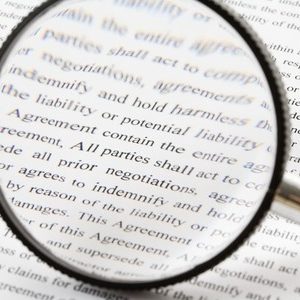The birth of a child is meant to be a joyous occasion but around 800 mothers a year in NSW experience the tragedy of losing their child either through stillbirth or death in the neonatal period. Stillbirth is defined as the delivery of a baby greater than 20 weeks gestation who shows no signs of life when born. Neonatal death is the death of a baby within 28 days of life.
Such a tragedy almost invariably leaves the parents asking “why”? In fact, it is one reason that many clients give for seeking the assistance of a lawyer. At least anecdotally, those affected by stillbirth or neonatal death seldom feel the health care facility or health care practitioners involved have been willing or able to provide them the information they desire as to why their baby perished.
The first hurdle for many people seeking a medical negligence lawyer to assist them in finding answers to their questions is that a medical negligence claim will only exist where at least one of the parents develops a recognised psychiatric injury as a result of the death of their child. Most people are appalled to learn that even where it is able to be established that the death of their child was the result of negligence, in the eyes of the law that death is not compensable in its own right, and that in order to hold the negligent party accountable at common law the parents will need to be able to establish that they have suffered more than ‘mere grief’(a term that in itself is somewhat offensive to many).
The impact of those restrictions imposed by the law of negligence is that for many parents it is not economically possible for them to engage the services of a lawyer as there is no prospect of a ‘no win no fee’ agreement as ultimately there will be no claim. However, there will always be a small number of parents who, even though they have no intention of making a claim for negligence, are willing and able to afford to have lawyers investigate the death of their child so that they feel they have done all they can to obtain truthful answers to their questions. In addition, a large number of parents who suffer such a heartwrenching experience will develop a recognised psychiatric condition as a result of the events and will be entitled, where negligence can be established, to bring a claim.
Conducting a medical negligence investigation generally begins with obtaining the relevant medical records and a proof of evidence from the client. Where the hospital concerned has conducted internal investigations into the cause of the death requests can be made for some of those documents as well. Once all the information is received, collated and analysed the independent opinion of a suitably qualified expert is then sought.
In some cases of there will be clear evidence of a departure from acceptable standards by the healthcare practitioners involved. However, establishing that that breach of duty was the cause of the demise of the baby is often difficult. In situations involving stillbirth, an expert’s ability to opine on the reason for foetal demise is hindered by the fact that stillbirth remains poorly understood.[1] For neonatal deaths, it is not uncommon that investigations that could have assisted in determining the cause of the baby’s death are not conducted at all or not conducted in a timely manner.
In both stillbirth and neonatal death, parents often refuse consent to an autopsy when the issue is discussed with them. Unfortunately, sometimes an autopsy is the best chance for obtaining critical information about what happened to the baby and therefore unless the process for obtaining consent for autopsy is forthright and robust a critical opportunity for obtaining information may be foregone and the decision later regretted.
Medical negligence investigations are constrained by the documents created and investigations undertaken by the healthcare practitioners concerned at the time. This begs the question whether there are better ways to handle and investigate such matters when they occur so as to provide these parents with what they can be satisfied is an independent and considered opinion as to the reason they lost their child.
One possible avenue may be to extend the coronial jurisdiction to make the oversight of the Coroner available in all cases of stillbirth or neonatal death. Ian Freckleton SC argued that Coroners should be able to investigate stillbirths as a public health imperative in his excellent article in the Journal of Law and Medicine. [2] As a plaintiff lawyers firm, our experience would suggest that more standardised procedures aimed at providing answers to distraught families would be well received and that the perception of impartiality in that process is fundamental.
An alternative or an adjunct to increasing the jurisdiction of the Coroner may be an independent organisation charged with the investigation of all instances of stillbirth or death where there may have been medical misadventure. Such a body would be not dislike the Civil Aviation Safety Authority and the role it plays in Australian aviation. An independent patient safety agency could not only assist grieving families to obtain answers but could also collate information and provide a true opportunity for nationwide learning from error and near misses. What political motivation would it take to see such a body become reality? Is it time that plaintiff lawyers and barristers joined other patient safety advocates and became a voice for change in this area?




